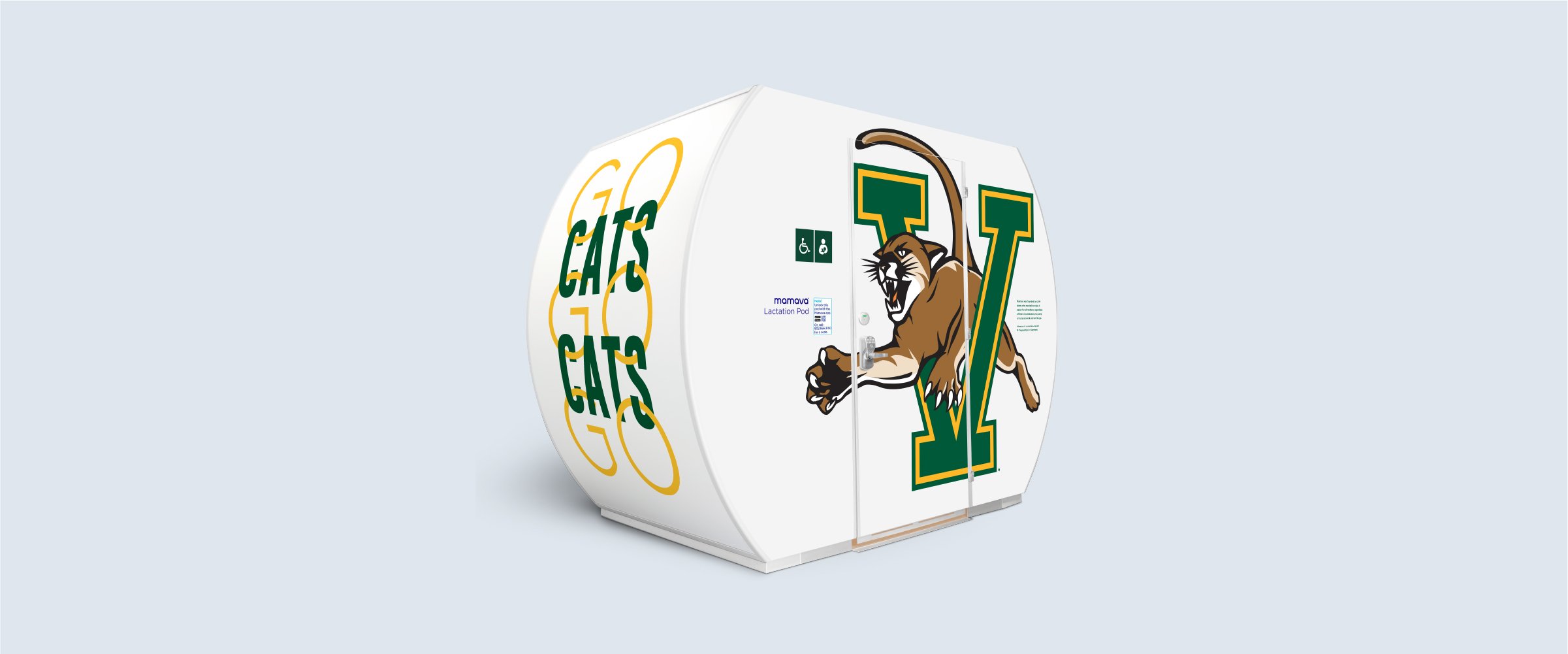Photo credit: Sally McCay
The University of Vermont (UVM) has a state-of-the-art medical center and a world-class environmental research institute, but for breastfeeding parents, the simple act of finding a space to pump was challenging. UVM’s Staff Council, the advocacy organization for non-faculty employees, had been receiving complaints about the lack of lactation spaces on campus for years. But when Stephanie Glock, at the university’s Fleming Museum of Art, and Mindy Kear, a financial specialist in the department of pediatrics, heard about the problems facing so many lactating parents, they took action.
“I’ve always had a private office I could pump in, so it was easy for me to feed all three of my babies exclusively with breast milk,” says Glock. “I wanted that kind of access for everyone." In 2019, Glock and Kear joined staff council members and volunteers to form the first ever Nursing Parents’ Advocacy group on campus to tackle the lactation space problem. Here, they share how they successfully lobbied to increase the number of dedicated lactation spaces on campus and improve culture in the process.
Talk with breastfeeding parents
The first thing the Nursing Parents’ Advocacy group did was to poll past and present breastfeeding parents about their experiences on campus. What they found was a long history of individuals making do with short-term, make-shift pumping spaces—like borrowing a co-worker’s private office or repurposing a supply closet. What they didn’t find was sustained institutional lactation support. “We discovered that all these pumping moms were having the same experience‚ but each time, once they were done breastfeeding, the space reverted back to its original use,” says Glock.
Identify the unique challenges of your campus
The group’s research also revealed that the shortage of dedicated lactation spaces on the central campus directly affected staff who, unlike many professors, don’t have large blocks of unscheduled time and private offices. Depending on one’s location on campus, accessing any of the five lactation spaces might involve a long walk, sometimes through snow and ice—a time-consuming process. “We realized that moms were cutting their pump sessions short to get back to work in time,” says Kear.
Explore solutions across departments
Based on their findings, the Nursing Parents’ Advocacy group submitted a proposal for two Mamava pods to the central HR department. UVM, like many higher education institutions, has a decentralized budgeting process. So while support for nursing parents was a cause the campus community was behind—all the college deans supported the proposal—it wasn’t clear where the funding would come from. “Everyone [we spoke with] on campus thought it was the right thing to do,” says Kear. Ultimately, the College of Arts and Sciences and the College of Engineering and Mathematical Sciences joined forces to fund and maintain the pods.
Choose strategic locations
The Nursing Parents’ Advocacy group then met with a range of stakeholders—including campus planning, facilities, campus architects, and risk management—to explore placement options for the Mamava pods. They decided to install one pod in the new STEM complex as a tangible symbol of support for women in fields that have tended to be male-dominated, and to provide necessary privacy in the all-glass building. The second pod was housed in the Gutterson Fieldhouse, a 4,035-seat hockey arena next to the athletic center, to ensure that nursing parents have options for private spaces when they attend events.
Provide comprehensive lactation resources
In addition to increasing the number of lactation spaces, the Nursing Parents’ Advocacy group worked with the Affirmative Action and Equal Opportunity Office to incorporate nursing and pregnancy into existing accommodation policies. They also created an on-call, face-to-face peer group—called the Lactation Liaison Network. “We provide the ‘where’ and ‘how to prepare for” pumping at UVM,” says Glock. The group is improving existing online resources with an interactive lactation space location map and helping develop campus building standards that ensure future renovations include lactation spaces. Recently, the group changed their name to the Working Parents’ Advocacy Group to better reflect a holistic support of UVM parents. As Kear explains: “We’ve become a movement on campus, not just a committee.”
Mamava designs solutions to empower breastfeeding and pumping parents on the go, like our freestanding lactation pods, Mamava’s lactation space locator app, and other helpful resources.
More resources








